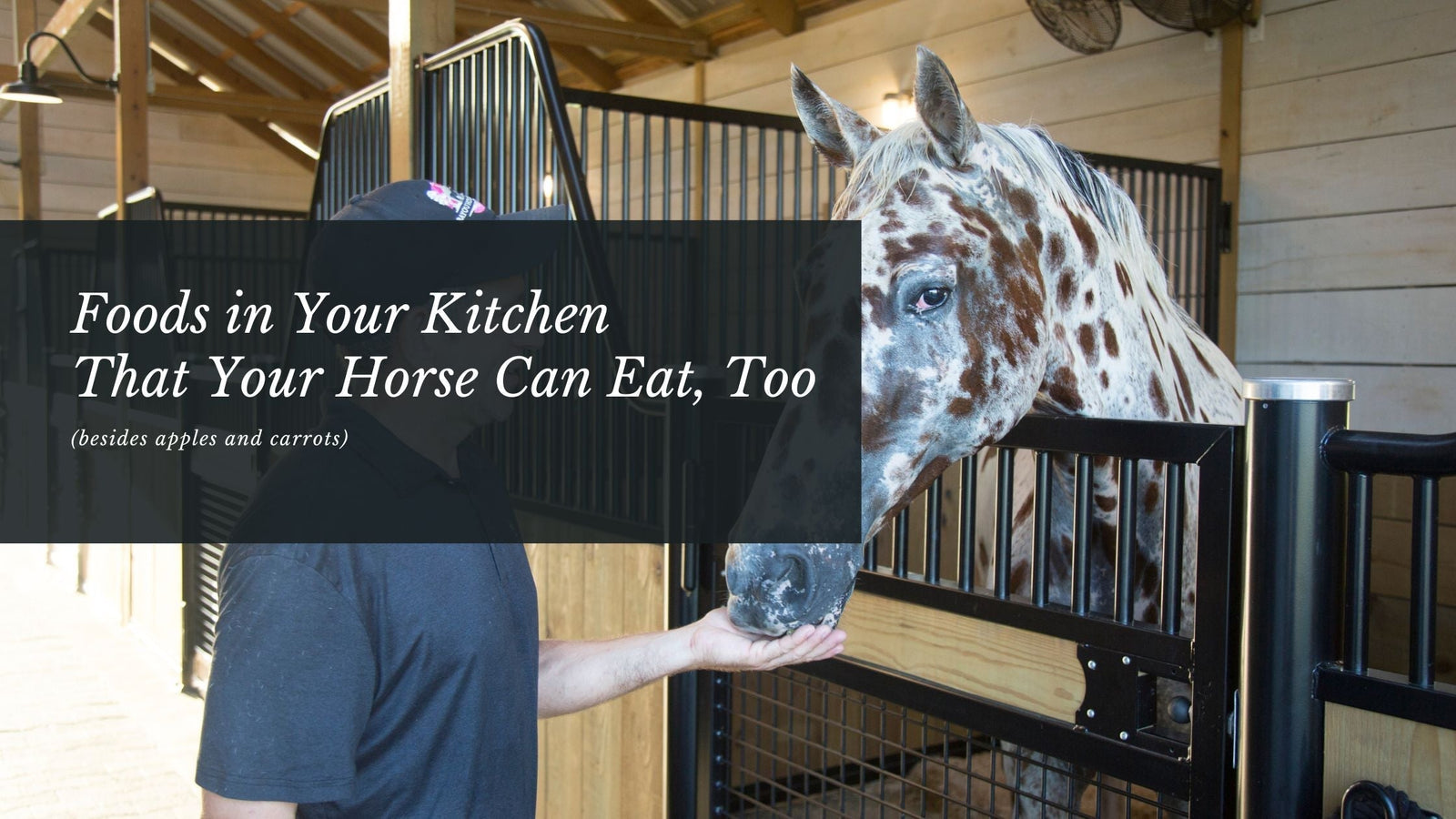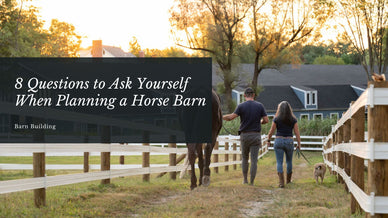This post was originally posted on Equivont.com and authored by Ellie Sack.
Here’s your guide to what common human foods your horse can enjoy with you!
- Carrots -They can eat the orange and the green parts!
- Apples -Safest without the seeds, but in small quantities, it’s okay!
- Watermelon—The whole fruit is safe for your horse, but make sure you cut it into small bites if you’re feeding the rind, especially!
- Berries -These little fruits can actually have a big benefit! Even horses with metabolic conditions can eat berries; studies suggest they may help with glucose management!
- Banana -The peel, too!
- Zucchini -& friends (squash, pumpkin, etc.)
- Oranges -The peel and everything!
- Celery -Smaller chunks make for a safer, less stringy snack!
- Pineapple -Cored and skinned, please!
- Leafy greens -Lettuce, kale, spinach, yum… Note: always monitor treat proportions and give bite-sized pieces your horse won't choke on.

It’s a great feeling to reduce food waste by sharing with your horse, but it’s important to be discerning when sharing treats that aren’t a normal part of their diet. Every special snack should be fed in moderation and safe, easily chewable portions. In addition to taking care of the safe foods to share with your horse, several food groups can be toxic to your horse.
Here are some foods that you should never share with your horse:
- Nightshade vegetables -This includes tomatoes, potatoes, eggplant, and any kind of pepper (so no salsa for your pony!)
- Allium vegetables -Onions, garlic, and leeks, oh my!
- Stone fruit -Anything with a pit! Some stone fruits are safe to feed your horse when cut away from the pit, but offering your horse a whole fruit with a pit in the middle is very dangerous. Plums, peaches, nectarines, avocados, cherries…
- Chocolate -Yup, just like your other four-legged friend, chocolate is a no-go for horses.

At the end of the day, if you’re ever unsure whether you should be feeding something to your horse, air on the side of caution by skipping the snack or consulting your veterinarian.





